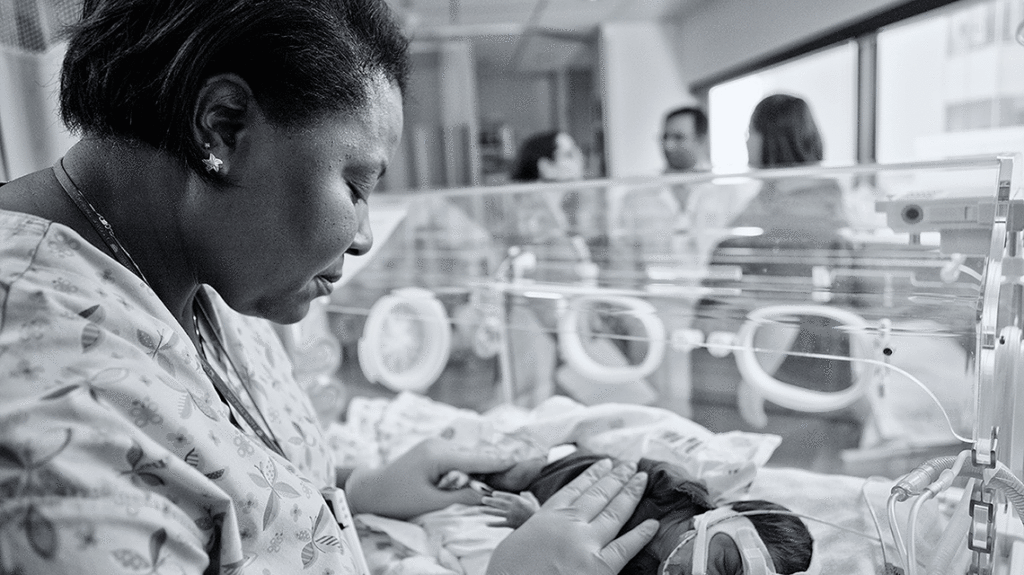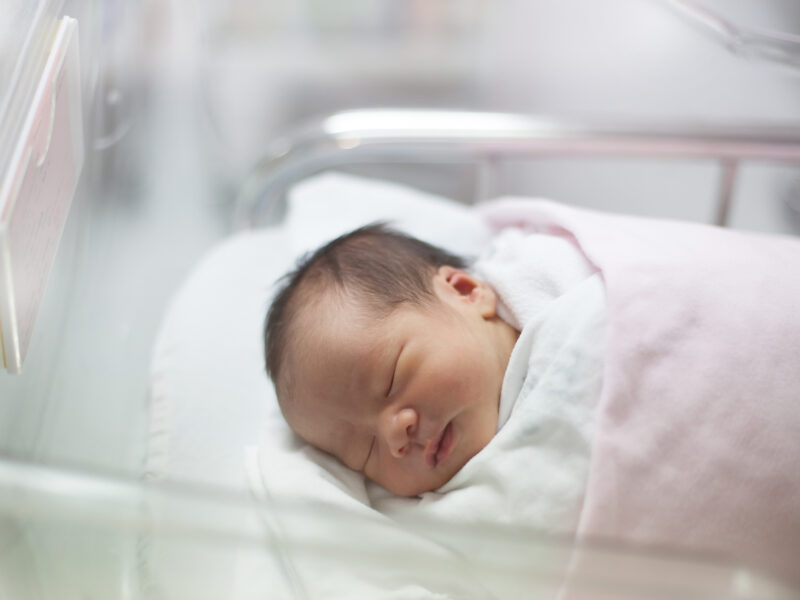Substantial Variation in Fluid Balance Among Preterm Neonates
Substantial Variation in Fluid Balance Among Preterm Neonates https://pediatricsnationwide.org/wp-content/uploads/2021/02/022812ds391HRBW_NICU-for-web-header-1024x575.gif 1024 575 Lauren Dembeck Lauren Dembeck https://pediatricsnationwide.org/wp-content/uploads/2021/03/Dembeck_headshot.gif- February 10, 2023
- Lauren Dembeck

In neonates, approximately 75 to 90% of the body weight consists of body fluid. The amount varies with gestational age, with higher total body fluid percentages in extremely preterm infants, those born at 22 to 28 weeks of gestation.
These extremely preterm infants have immature skin and kidneys and thus immature fluid homeostasis regulatory mechanisms, putting them at higher risk of both volume depletion and fluid overload compared with more mature infants.
Fluid overload in the first days of life, in both term and preterm neonates, is associated with poor neonatal outcomes, such as the need for mechanical ventilation, necrotizing enterocolitis, and bronchopulmonary dysplasia or chronic lung disease.
“In preterm neonates, diuretics are often used to enhance urine output to achieve negative fluid balance and improve their pulmonary status, potentially lowering the rates of mechanical ventilation and mortality in neonates with fluid overload,” explains Tahagod Mohamed, MD, director of the Neonatal Nephrology Program in the Division of Nephrology and Hypertension at Nationwide Children’s Hospital. “However, physicians must be mindful that use of diuretics can lead to acute kidney injury which has multisystem implications and potential for further worsening of fluid balance.”
Dr. Mohamed and colleagues conducted a retrospective study of critically ill preterm neonates (≤36 weeks of gestational age) in Nationwide Children’s neonatal intensive care unit between 2014 and 2020. The team evaluated the epidemiology of fluid balance in the first 14 postnatal days and its association with mechanical ventilation and mortality. They also studied the association of diuretics with fluid balance, mechanical ventilation, and mortality. The study’s findings were recently published in Pediatric Nephrology.
The study included 1,383 preterm neonates, of which 426 born extremely premature (31%). The team observed overall median lowest and peak fluid balances of 7.8% (at day 3) and 8% (at day 13), respectively, within the first two postnatal weeks.
The team discovered fluid balance distribution varied significantly by gestational age. Overall, they found 37% of preterm neonates had positive fluid balance at the end of the first postnatal week. They also found extremely preterm neonates had wider ranges of fluid balance, with more positive peak and more negative lowest fluid balances in the first 14 days of life.
“The fluid balance percentage in the first few days of life should be negative, known as physiologic weight loss, and it occurs because newborns need to get rid of the extra fluid in their body so their lungs can expand and pulmonary functions mature,” adds Dr. Mohamed.
The researchers demonstrated that peak fluid balance of greater than or equal to 10% was associated with an increased odds of mechanical ventilation on postnatal days 7 and 14, with the highest odds ratios of mechanical ventilation in neonates with fluid balance greater than or equal to 15%. They also showed that peak fluid balance of greater than or equal to 15% was associated with the greatest odds of mortality.
In the 13% of the cohort that received diuretics, the team found diuretics were used more frequently in neonates with younger gestational age, smaller birthweight, and positive fluid balance as well as those who needed mechanical ventilation. They noted a nonsignificant trend of lower odds of mechanical ventilation on postnatal day 7 in neonates with 5 to 15% fluid balance who received diuretics.
“These data highlight the need to closely monitor fluid balance in the NICU and could be helpful to clinicians caring for critically ill preterm neonates when making decisions about the management of fluid balance,” says Dr. Mohamed.
She also highlights the need for prospective studies to identify the ideal early fluid balance in preterm neonates and to fully characterize the impact of diuretics on neonatal patient outcomes.
Reference
Wright ML, Klamer BG, Bonachea E, Spencer JD, Slaughter JL, Mohamed TH. Positive fluid balance and diuretic therapy are associated with mechanical ventilation and mortality in preterm neonates in the first fourteen postnatal days. Pediatric Nephrology. 2023 Jan 4. doi: 10.1007/s00467-022-05861-2. Epub ahead of print. PMID: 36598600.
About the author
Lauren Dembeck, PhD, is a freelance science and medical writer based in New York City. She completed her BS in biology and BA in foreign languages at West Virginia University. Dr. Dembeck studied the genetic basis of natural variation in complex traits for her doctorate in genetics at North Carolina State University. She then conducted postdoctoral research on the formation and regulation of neuronal circuits at the Okinawa Institute of Science and Technology in Japan.
-
Lauren Dembeckhttps://pediatricsnationwide.org/author/lauren-dembeck/
-
Lauren Dembeckhttps://pediatricsnationwide.org/author/lauren-dembeck/
-
Lauren Dembeckhttps://pediatricsnationwide.org/author/lauren-dembeck/
-
Lauren Dembeckhttps://pediatricsnationwide.org/author/lauren-dembeck/January 29, 2019
- Post Tags:
- Neonatology
- Nephrology







